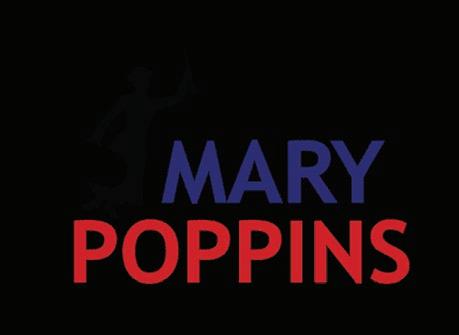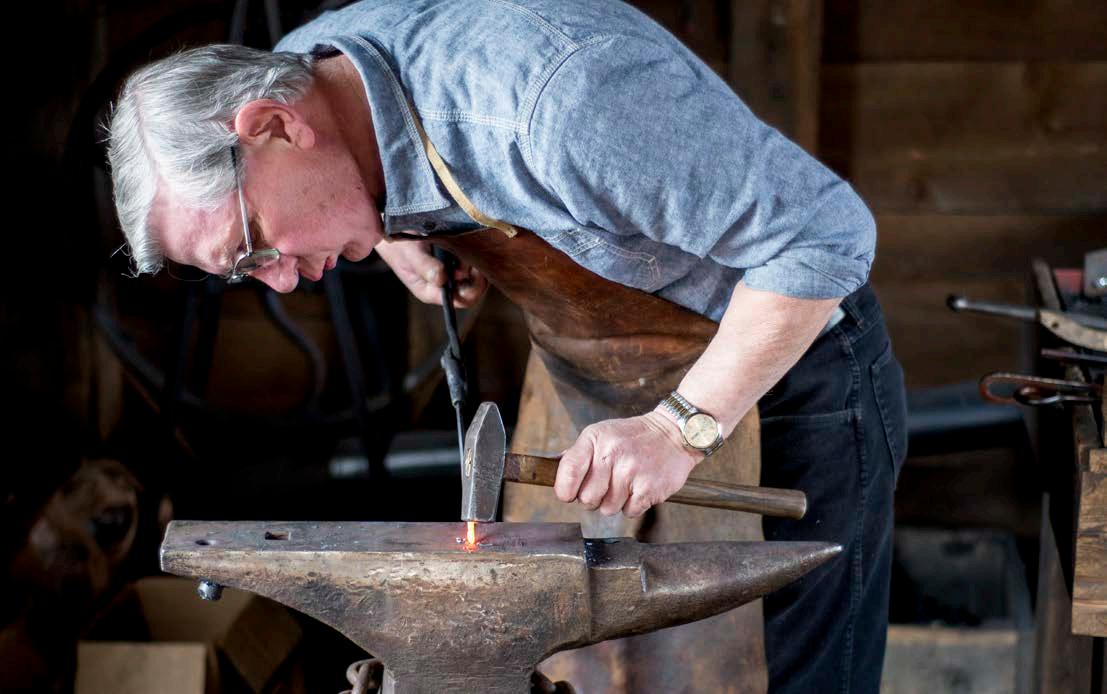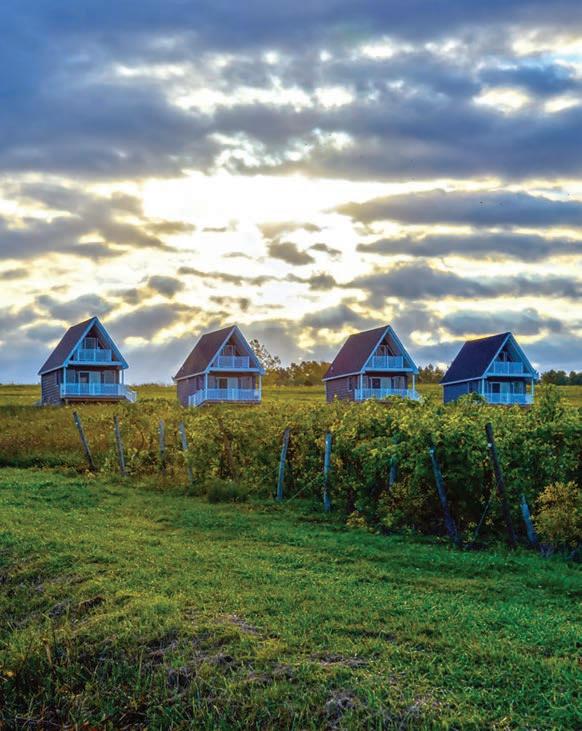





SEPT 29-30, 2023
FRIDAY 11 A.M. - 6 P.M.
SATURDAY 9 A.M. - 4 P.M.
WYOMING COUNTY FAIRGROUNDS
9141 US ROUTE 6, MESHOPPEN, PA 18630
FEATURING
• FREE ADMISSION FOR THE PUBLIC!
• OUTDOOR REC AND HERITAGE VENDORS
• EDUCATIONAL PROGRAMMING/ GUEST SPEAKERS
• GUIDED NATURE HIKE
• PADDLE THE 2023 RIVER OF THE YEAR

—SUSQUEHANNA RIVER NORTH BRANCH
• SPONSORSHIP OPPORTUNITIES
• ON-SITE CAMPING FOR VENDORS
VENDOR FEES (Both Days)
$50 - Businesses
$25 - Non-profits/Agencies
CONTACT US TO BECOME A VENDOR/EXHIBITOR
CONTACT@EMHERITAGE.ORG
WWW.EMHERITAGE.ORG/EVENTS

570-265-1528
RIVER OUTFITTERS, BICYCLE SHOPS, SPORTSMEN’S CLUBS, HUNTING AND FISHING VENDORS, AND MORE!

LOCAL AND STATE PARK REPRESENTATIVES, DCNR, PA ENVIRONMENTAL COUNCIL, PA FISH & BOAT AND MORE!
AREA MUSEUMS, HISTORIC SITES, HISTORICAL SOCIETIES
This event is being funded in part by the Department of Conservation and Natural Resources, the Endless Mountains Visitors Bureau, and the Wyoming County Room Tax Fund
 By Teresa Banik Capuzzo
By Teresa Banik Capuzzo
From arson investigator to oneman-band, Chris Eckert’s life is a song.

Post American Idol, Elmira’s Isaiah Smallwood will sing at Music in the Square.

 By Gayle Morrow
By Gayle Morrow
Trumansburg hosts festival of music and dance.
www.mountainhomemag.com
E ditors & P ublish E rs
Teresa Banik Capuzzo
Michael Capuzzo
A ssoci A t E P ublish E rs
Lilace Mellin Guignard
George Bochetto, Esq.
A rt d ir E ctor
Wade Spencer
M A n A ging E ditor
Gayle Morrow
s A l E s r EP r E s E nt A tiv E
Shelly Moore
c ircul A tion d ir E ctor
Michael Banik
A ccounting
Amy Packard
c ov E r d E sign
Wade Spencer
c ontributing W rit E rs
Maggie Barnes, Dave DeGolyer, Terence Lane, Ron Rohrbaugh, Jan Bridgeford-Smith, Kelly Stemcosky, c ontributing P hotogr AP h E rs
Dave Burbank, Stu Gallagher, Terence Lane, Camilla Sossi Kelly Stemcosky, Curt Weinhold
d istribution t EAM
Amy Woodbury, Grapevine Distribution, Linda Roller

t h E b EA gl E Nano
Cosmo
ABOUT US: Mountain Home is the award-winning regional magazine of PA and NY with more than 100,000 readers. The magazine has been published monthly, since 2005, by Beagle Media, LLC, 39 Water Street, Wellsboro, Pennsylvania, 16901, and online at www.mountainhomemag.com. Copyright © 2022 Beagle Media, LLC. All rights reserved. E-mail story ideas to editorial@mountainhomemag. com, or call (570) 724-3838.
TO ADVERTISE: E-mail info@mountainhomemag.com, or call us at (570) 724-3838.


AWARDS: Mountain Home has won over 100 international and statewide journalism awards from the International Regional Magazine Association and the Pennsylvania NewsMedia Association for excellence in writing, photography, and design.

DISTRIBUTION: Mountain Home is available “Free as the Wind” at hundreds of locations in Tioga, Potter, Bradford, Lycoming, Union, and Clinton counties in PA and Steuben, Chemung, Schuyler, Yates, Seneca, Tioga, and Ontario counties in NY.
SUBSCRIPTIONS: For a one-year subscription (12 issues), send $24.95, payable to Beagle Media LLC, 39 Water Street, Wellsboro, PA 16901 or visit www. mountainhomemag.com.

One hundred and seventy-four. As near as we can tell— including that pile above, which represents this year’s haul—that’s the number of professional journalism awards Mountain Home has won since Mike and I started this publishing experiment in December 2005. This year we broke our own record, winning five IRMAs from the International Regional Magazine Association, competing against the big dogs across North America, fourteen Keystones (from the Pennsylvania News Media Association), and—new for us—two from the Pennsylvania Outdoor Writers Association.

David O’Reilly, who retired to Wellsboro from an award-winning career at the Philadelphia Inquirer, won big for “Tommy Comes Home,” the tale of Tommy Hilfiger’s gift to Elmira College, winning both an IRMA gold for general feature and a first place Keystone for news feature story. Then he added a first place Keystone for business and consumer story for “The Butchers, the Bakers, the Legacy Makers,” about Hillstone Farms, the family farm that expanded their fresh wares into their own store in downtown Wellsboro. Local poet and writer Judith Sornberger had never written for us before, but her dear friend Lilace Mellin Guignard just happens to be our associate publisher, and when we heard about the Judy Bolton mysteries, Lilace knew who to tap. Judith’s “The Girl Detective Who Haunts Potter County” won an IRMA bronze for historic feature and a first place Keystone for feature story.
Speaking of Lilace, her achingly beautiful cover story on “Pine Creek Jon”—who won the hearts of everyone who knew him at Pine Creek Outfitters and lost his young life to cancer—was also a double winner, taking a second place Keystone as well as an IRMA merit award for personality profile. POWA gave Lilace second place in the Lantz Hoffman White-Tailed Deer Award for “The Quiet Hunter,” about a woman who has hunted these hills for decades, long before anyone thought up pink camo togs. Lilace and Gayle Morrow, our beloved managing editor and Mother Earth columnist, wrote the bulk of “Saving Santa Some Mileage,” tales of local artisans and purveyors, with Janet McCue and yours truly adding a story apiece for a second place Keystone for business or consumer story. Gayle also
won an honorable mention Keystone for feature story writing for the fascinating “The Nose Knows,” about the smelly world of search and rescue dogs.
Terence Lane, a sommelier and tasting room guide at Lakewood Vineyards, had never written for us before last year, when we tapped him to write “Fragile Pleasures.” One of the judges who awarded him an IRMA merit award for art and culture writing said, “I never expected I could be entertained by a story about wineglasses, but that’s what good writing can do.” Terence followed that with a Keystone, an honorable mention for lifestyle/entertainment beat for covering the wine scene. Maggie Barnes, our own Erma Bombeck, put another notch on her crowded belt for her Glory Hill Diaries, winning a first place Keystone for columns. David Nowacoski, who you know better as the guy who owns Delivered Fresh and sometimes delivers your groceries, won his first Keystone, edging in right behind Maggie for his Field Notes column. Steve McCloskey fielded a first place Keystone for sports feature for “In a League of His Own,” the inspiring story of Dave Clark, stricken by polio, who played his entire professional baseball career on crutches.
Linda Stager’s Back of the Mountain photo, “Radiant Passage,” won two, too: a second place from POWA for best published art and a first place Keystone for feature photo (beating out: Linda Stager, who took home an honorable mention for “Nature’s View-Master.”) Gwen Button, our just-retired designer, won an IRMA award of merit for the cover design of “Marvel at Comic History in the Making.” Amy Packard—who runs the books and the show in the office—said, “We should do the masthead for that issue in comic font.” And the rest is history.
Many consider punning a psychological disorder, but we cultivate it in our headline writing. I won’t mention any names (like Lilace or Mike), but, as we toss ideas around, some are so good we howl. We won both a first place and an honorable mention, so the judges must have agreed. “Tom Foolery” headlined a story on tricking male turkeys, and an older runner racing up and down the hills of Potter County? “Over the Hill.”
 By Lilace Mellin Guignard
By Lilace Mellin Guignard
On a summer First Friday, Main Street Wellsboro is alive with the sound of music and the laughter of amblers. You can hear him two blocks away, a crooning baritone that transforms the town into Margaritaboro—though everyone here seems to be thriving rather than wasting away again. In front of Carson Finance, Chris Eckert, who wears sunglasses and cowboy hat in the ninety-degree heat, switches from Jimmy Buffet to the Eagles, telling everyone to “Take It Easy”—advice folks are happy to heed. Then he launches into the George Jones torch song, “He Stopped Loving Her Today,” and it’s obvious why Cat Rush, selling Innerstoic cider two doors down, says, “He’s so versatile!”
 Wade Spencer
Front porch finger pickin’: Chris likes to practice guitar and drink coffee where he can see the country stretch before him.
Wade Spencer
Front porch finger pickin’: Chris likes to practice guitar and drink coffee where he can see the country stretch before him.
I guess that’s one way to describe a man who used to go from fire to fire but now goes from fair to fair. It’s a change he and his wife, Sue, have embraced, along with their switch from living in the Poconos and working in New Jersey to residing in retirement on a hill outside Wellsboro, with a long view from the porch. That is, when they aren’t in their camper at a county fair somewhere. In fact, when Chris packs up his guitar and sound equipment tonight, he’ll go home and pack to leave early for the West End Fireman’s Fair in Gilbert, Pennsylvania, where he has two shows the next day.
Chris grew up in West Milford, New Jersey, and at fourteen became a junior firefighter. At eighteen he was made a full volunteer firefighter and fought fires in New Jersey and Pennsylvania for forty years, serving as a fire chief in both states. Public service is in his blood. His father was a firefighter, too, and mayor of West Milford. “I got in trouble in second grade for handing out campaign materials,” Chris remembers with a grin. Unbeknownst to his parents, one morning he grabbed a bunch of the rain bonnets, pens, and buttons that read Vote for George Eckert and stuffed them in his backpack. “Make sure you tell your parents to vote for my dad,” he told his classmates. His teacher called his mom, who told Chris not to do that again.
But his mom seemed pleased.
After high school, Chris worked as a part-time police officer and in the road department (“I was a signs and lines guy”) while taking college courses. He wound up with a certified public manager degree from Fairleigh Dickinson University. When he was twenty-seven, he took the civil service
test and was hired as a firefighter and fatality investigator in New Jersey. Later, he worked with the K-9 unit, using dogs trained to search for all types of things, from cadavers to tobacco. Chris explains that smugglers bring tobacco from the low-tax southern states up to the high-tax northern states. They can make a lot of money; if they get caught, the penalties are less than if they were smuggling drugs.
In the late ’90s he started working with the dogs in fire scene investigations. Their environmental training includes time on a boat, helicopter, fixed-wing plane, and climbing a fire truck ladder. The Coast Guard takes dogs just off Atlantic City and zigzags around while someone on shore puts a drop of gasoline on a penny and buries it four inches down in a sandy area. On land again, the dogs have to instantly go into search mode without being disoriented. Chris says, “The dogs are unbelievable. It’s amazing how little they need.”
The last major case he worked on was a triple homicide. A house was fire-bombed— not the intended house, as it turned out, and a man and his two- and four-year-old daughters died in the fire. “The canines made the case,” says Chris. “We had no idea what was used, and they identified denatured alcohol.” Everclear was used to make Molotov cocktails in Snapple bottles. By going to stores in the area and asking for video footage of anyone who bought a lot of Snapple, the arson investigators found their arsonists. Three people got put away for thirty-to-life.
Fire scenes are a kind of archeological dig and more physically demanding than fighting the fire. Putting a fire out might take an hour while wearing a mask with a selfcontained breathing apparatus. But once he became a fire investigator, Chris would be on the job for days sometimes, and those days
were six to eight hours of meticulously going through the building. “It’s a love,” he says. “It’s being able to piece together an event that’s so chaotic. You need to find evidence and come to conclusions.” After that, he’d write up technical reports that were twenty pages, single-spaced, to be used in court.
When investigating fires, Chris still wore a mask, but just the N95 ones that we’re all so familiar with now. “They’re okay,” he says, “but on hot days in overalls, sometimes the mask went to the side ’cause you’re panting, and sweat is dripping down your face. You can count on the conditions being awful.” Like, either below freezing or sweltering temperatures.
Every year he’d have a physical. “I started doing poorly on my pulmonary testing. They thought I had asthma.” Chris, who sang in a duo on weekends, had noticed he couldn’t hold notes as long anymore. “That’s when I was diagnosed with mild to moderate COPD [chronic obstructive pulmonary disease].” So, in 2006 he started taking medication and using an inhaler.

By this time, he and Sue were living in the Poconos, where he was serving as Chestnuthill Township supervisor, still singing in a duo (taking a puff on his nebulizer before each performance), and performing solo gigs. In 2010, he and Sue booked a campsite at Twin Streams campground in Morris. They bought an RV and came back every summer after that. In 2015, at the age of fifty-five, he retired, and he and Sue talked about moving to Tioga County someday.


emcee the fair all week in addition to playing his two shows. “The emcee they’d had charged too much, and someone had seen me emcee our fireman’s carnival,” he says, adding, “I got a very good education about the fair business.” He saw how it was a year-round thing. As a town emergency management coordinator, Chris was familiar with the meetings held before big events like fairs where “what if” plans are made. But now he got to meet all the acts, work more with the sound guy, and learn the ins and outs of the fair scene.
If you want to hear Chris dish some dirt on the big-name acts that come through, it won’t happen. Not because he’s tight-lipped, but because he says, “I have not met anybody who has not been overthe-top nice. I had a two-hour conversation with Mel Tillis, Jr., and he invited me down to his farm. He gave me his address.” He shakes his head, remembering. “Sometimes medium acts have an attitude, but the big names are all wonderful.”
Chris recounts, “Dion Pride—Charley Pride’s son—played a first set to a standing room only crowd. Poor guy, during the break it poured. He played his second set to five people huddled under umbrellas. He said, ‘You stayed for me, I’ll stay for you.’” This is the kind of performer who impresses Chris, whose own personal code on stage is: don’t swear (though he says he has a mouth like a sailor at home), always play a full show whether there is one person or a thousand, be professional, and always put on the best show you can.
Chris enjoyed meeting all the other acts. When it was time for him to perform, the sound guy, Tom Petrusky, would introduce him. Life went on like this, with his township responsibilities and gigs. But the area they lived in was changing. “It was becoming the sixth ward of New York City,” Chris says. There were ten-mile traffic jams. Gang activity was picking up. “Sue said, ‘If we’re going to move to Tioga County, let’s not wait,’” so they put their house on the market and bought property outside of Wellsboro—right when covid shut everything down.
Two weeks after moving, he went to get a building permit (they lived their first four months in their RV) and the woman asked if he wanted to be on the planning commission. He said maybe. He went to the next meeting, and when they mentioned the opening, that woman stood up and pointed at Chris: “Ask him. He’ll do it.” And soon he was chair of the Delmar Township Planning Commission.
When things started opening up again, Chris was faced with reinventing himself as a solo act in a place where no one knew him. He made business cards, pounded the pavement, and played First Fridays in Wellsboro for tips. He was still playing for the West End Fair, and in 2022 Tom told him he should go to the Pennsylvania State Association of County Fairs annual convention in Hershey. “I asked Sue if I should do this and she said, ‘Why not? You’re retired.’”
So, Chris joined the PSACF and planned to have a booth at the January convention. But the real exposure comes if you get a showcase spot to play live for everyone looking to hire talent. Only seventeen out of hundreds get chosen. Turns out, Tom talked to some folks who helped move Chris’s application through the process.
August

10th, 11th & 12th 2023
On


For a complete calendar of events and camping information visit us at









Brothers. Chris likes old country and calls new country “pop with a twang.” As he segued into “The Fireman” by George Strait, Chris called to the crowd, “Where are all the firemen out there?” Some performers don’t engage with the audience, but that’s Chris’s favorite part. And he knew there’d be lots of firemen out there. His last song of the showcase—and of every classic country show he does—was “God Bless the USA” by Lee Greenwood. “Everyone stood, and I was thinking ‘there’s no way they’re gonna cut me off,’” he laughs. But, always the professional, he ended with about ten seconds to spare.

The trade show lasted three days. In addition to musicians, there were people selling food trucks, rides, bingo supplies, ribbons, plaques, and fair queen tiaras, sashes, and scepters. It was a whole economy.
“The vendors are so helpful to each other,” he says. “They share info and advice. If I hadn’t had that informal education, I probably wouldn’t have done as well when I joined the state association as I have.” When he and Sue headed home, Chris had a few fairs and events lined up, but he’d been told most wouldn’t make decisions there. They’d take their recommendations back to their committees and you’d have to wait for them to call.
They called, all right. Chris is booked solid through October.
Friends in all places: Chris and Mel Tillis, Jr. (top); Chris and his wife, Sue, in front of their RV; Chris making kids dance at First Friday in Wellsboro.

Chris and Sue listen to Pandora radio at home in Delmar Township. Each morning she’ll ask him, “What do you want to listen to today?” And his answers vary from country to ’40s big band to classical. “I love all genres. Sometimes we listen to Andrea Bocelli.” Chris sings with the Wellsboro Men’s Chorus and was the lead last September in the local community theater’s production of My Way: A Musical Tribute to Frank Sinatra. He’s versatile, remember? For oldies gigs, he wears a sparkly red dinner jacket. For the country, patriotic, and gospel shows he wears his cowboy hat. Check out chriseckertmusic.com to see his repertoire of over 600 songs.
Chris plays the guitar, thanks to the nun who taught him in fourth grade. But his full sound comes from backtracks. It’s a lot cheaper for fairs to hire one performer to provide “live vocal entertainment performed with fully orchestrated arrangements” that will be familiar to listeners and “provide the dynamic sound of a band without all the fuss.” It’s less fuss for him, too. His days as part of a wedding band were full of aggravation, because those events usually involved alcohol…which usually resulted in a band member or maybe mother of the bride throwing back too many.
When he’s not performing, practicing, or working for the township, Chris is in RV mode. His one concern when he went to the convention back in January was that he didn’t want to leave Sue—or their mutt, Yogi—home alone when he was gone for days. So, he writes into every contract that he gets a free camping space with full hook-up. Spending vacations at fairs isn’t a new thing for them. He, Sue, and their three kids used to vacation every summer at Lake Wallenpaupack during the Wayne County Fair, the same place Chris’s folks took him when he was a kid. This year, families will be coming to fairs to see him.
Fairs highlight our agricultural heritage. Then there’s the fair food—Chris’s favorite is strawberry shortcake—and rides—he used to love the Twister. His favorite cotton candy flavor is blue raspberry—but he was surprised to learn that in Tioga County we also have maple flavor. An economic impact study by Shepstone Management Company reports: “Fairs are Pennsylvania’s original tourist attractions, providing food, entertainment and other tourism services throughout the Commonwealth” for more than 250 years. In a state with sixty-seven counties, there are 109 county fairs that are members of PSACF. See Torch on page 40























































 By Maggie Barnes
By Maggie Barnes
How far can a pinky promise take you?
Isaiah Smallwood of Elmira made an impressive leap from a deal with his wife to a Hollywood stage, holding the famed “golden ticket” as part of his American Idol experience. A singer since the age of eight, thanks to his mom’s encouragement, Isaiah was not a fan of the concept of singing competitions.
“Reality TV,” says the twenty-eightyear-old with a wrinkled nose.
But watching the end of last season with wife Brittany at his side, she made a suggestion. “You pick who you think will win and I’ll pick mine. If my guy wins, you have to apply to the show. If yours wins, we forget about it.”
Then came the pinky promise which, as anyone knows, cannot be violated. Brittany’s pick won, and Isaiah was on his way. It
would prove a far different experience from his years leading worship bands at church.
American Idol is not like karaoke night at your local pub. The application process is detailed and long, including an audition video submitted through exacting channels. For some odd reason, Isaiah decided to leapfrog over all of that and contacted an Idol producer through Instagram. He told his story and the producer said he should send him the audition. After that, things happened quickly. One night on Zoom, the producers asked Isaiah to call his wife into the room and then casually asked her if it was okay if her husband got on a plane for New Orleans to sing in person.
It was okay with her. Married for five years, Brittany has a quiet belief in her husband that some wives wear like a subtle perfume.
But Isaiah was “stunned.”
“I had been told I was a good singer, but I didn’t completely believe it,” he says. “I didn’t have a lot of confidence.” But that level of confidence began to rise in New Orleans, where Isaiah sang through three rounds and earned the ticket to Hollywood.
“That week in Hollywood was surreal, like a dream,” he describes. It was also rigorous and demanding, with contestants moving from one obligation to another, barely getting a night’s sleep in total for the entire week, the test of stamina all part of the Idol experience. His fears of a “game show environment,” complete with nastiness and backbiting among contestants, turned out to be totally off-base.
“I made friends for life,” Isaiah says. “More than friends, like family.” He indicates a chain of text messages on his
phone from his former stage mates. “It was nothing but love and support and each of us truly being ourselves.” He also has high praise for Idol judges Luke Bryan, Katy Perry, and Lionel Richie. “They could not have been nicer or more encouraging.”
Isaiah didn’t go on to win American Idol—that particular dream ended on that Hollywood stage. But the experience has given birth to many more dreams, things that had not previously seemed possible. When he came home, Isaiah emailed the organizer of Corning’s GlassFest. He asked if they had room for him on the program. They didn’t…until an act cancelled, and they called him back.
“Singing on that stage, with friends from church and elsewhere, it was incredible,” Isaiah looks heavenward with a blissful smile. “A moment I never thought would happen.” That contented countenance comes standard with Isaiah when he sings. He smiles through most of the song, eyes closed and face radiant. That inner peace is a gift from God, he says.
“I trust God completely, and I know that He loves me and wants me to be happy. I feel his presence when I sing.” He covers songs of some of his favorite artists, like Allen Stone, whose “Give You Blue” Isaiah interprets as a message from God to say that He will always care for him. (And when sung in the corner of a local grocery store, where this interview took place, leads to the lady who is sweeping the floor to sweep the same spot over and over again, until the song finishes.)
“Singing for me is an expression of love,” he grins again, “It is a celebration of love and joy and togetherness.”












For the immediate future, Isaiah is especially looking forward to July 20, from 6 p.m. to 8 p.m., when he will perform a free concert as part of the Music in the Square series in Corning. He calls it a block party that will unite the community in the love of music.





“If we just love and respect each other, this community can do amazing things. It’s not just Corning, or Horseheads, or Elmira. We are all one community. We need to come together.”



The last couple of years have been chock full of challenges, from job losses to the death of Brittany’s beloved grandfather, to the death of Isaiah’s father, to his mom having a severe stroke. Trying to make a steady living in the unpredictable world of music is not easy, and the young couple have their worries. But Isaiah knows now that “nothing is impossible.”
“I’m a kid from Elmira, and I made it to the American Idol stage,” he says with force. “I fought depression and anxiety. I learned to believe in myself. We can live our dreams. We just need to believe in them enough, and to trust that God is there for us.”
Two days before he passed away, Isaiah’s dad told him, “Success is not what you have. Success is who you are.”
From a pinky promise to Hollywood and back home, Isaiah has been on a journey to find out who he is. While the road ahead is shadowed and uncertain, Isaiah’s steps are sure. He now understands the power of his gift and feels a strong obligation to share that gift, and its message of love and joy, with all who will listen.
 By Ron Rohrbaugh
By Ron Rohrbaugh
Ithought my heart would explode when Rex stepped to the shooting line and brought his longbow to full draw. This was it. The moment we’d been talking about all summer. It’s not every day you get to see your seven-year-old compete in an activity he loves. I saw an expression of intense focus form on his small face and watched as the middle finger of his right hand found its anchor point at the corner of his mouth. I knew what was next. In a fraction of a second, the fingers of Rex’s string hand would relax and the arrow would be off.
The eruptions in my chest were an equal mix of nervousness and pride. Glancing around at the hundreds of others watching the Eagle Eye competition at the Eastern Traditional Archery Rendezvous, I realized that I was not the only one gritting my teeth. The tight-knit nature of the traditional archery community was on full display as this boy fought through his nerves to make
a shot he’d been dreaming of for months. Yes, he was my son, but in many ways he was their child, too—the child of a small community of people who pride themselves on supporting each other through mentoring and friendship.
The ETAR, held at Ski Sawmill Family Resort in Morris for the first time last year, and scheduled again this year for the same venue, July 27 through 30, is the largest gathering of traditional archers in the world. Traditional archery is distinct from other forms of archery in that the wooden bows have no mechanical improvements. Unlike a compound bow, which uses cables and wheels to store energy, traditional bows have just a single string attached to a simple piece of wood—think longbows of the type used by Native Americans or recurves perfected by archery icon Fred Bear in the 1950s.
In the two decades following World War II, recreational archery was one of America’s
most popular pastimes, with shooting clubs in nearly every city. Invention of the compound bow in the early 1970s nearly drove traditional archery to extinction, but in recent decades, thanks to events like ETAR, traditional archery has been making a comeback.
Like any niche activity with far-flung participants, opportunities to gather for comradery and storytelling are treasured. So, each summer, thousands of traditional archers from around the world come to ETAR to shoot, shop for traditional gear in the vendor tents, attend workshops, and exchange ideas about shooting techniques.
While you might see men in buckskins or Robin Hood hats toting wooden bows and steel-tipped arrows, the heart of ETAR is about family. On every course, you’ll find dads helping kids to take their best shot, and moms at full draw with a toddler in a backpack carrier. And, most importantly,





















 By Lilace Mellin Guignard
By Lilace Mellin Guignard
Have you ever seen Wade Spencer’s photographs? That’s a trick question because the photo on the cover of this issue is his, as are many of the inside photos. But our pages aren’t the only place to see his work.
Wade, our new art director (more on that in the August issue), has drone photographs on exhibit this month in the Gmeiner Art & Cultural Center’s Atrium Gallery in Wellsboro. An Eagle’s Eye View: Tioga County from Above will be on display July 8 through July 30. Large format HD metal prints (18 x 24 inches and 16 x 20 inches) of top-down views in several seasons give an extra sharpness and color vibrancy to the image and resist fading. “I chose to print on aluminum so they’d be very durable,” he says.

Wade enjoys drone photography because “it’s a unique perspective that most of us don’t get the opportunity to see.”


The opening reception is Saturday, July 8, from 2 to 4 p.m. The Gmeiner is located at 134 Main Street, Wellsboro. Regular hours are noon to 6 p.m., Tuesday through Sunday. Admission is free, and prints will be for sale. For more information about exhibits go to gmeinerartculturalcenter.org, find them on Facebook, or call (570) 724-1917.


















Ahoneybee must usually visit a flower seven to ten times before it’s fully pollinated, but a bumblebee can pollinate a flower in a single visit. Paige Griffin chose the bumblebee as the icon for the Humble Bumble Project, the nonprofit she dreamed up before her death from cancer at the age of twenty-two. It couldn’t be more fitting, because Paige made an impact on people she met only once.
Michele Griffin, Paige’s mother and the co-founder of HBP, says “Paige was a save-theearth type girl.” The charity provides financial help and care bags to pediatric and young adult cancer patients. From the moment Paige was diagnosed to when she passed away, help and assistance poured out to her and her parents, Michele and Chad.
The family had good health insurance— Michele is an accounting manager at SAM, Inc., a private human services organization that contracts with Tioga County—but there were lots of travel costs associated with Paige’s medical treatments. Still, over the two-and-a-
half years, the family only paid $2,500 out of pocket. They know their situation is unusual. The mission of HBP is to help alleviate the financial burden created by the countless cancer-related expenses and necessities that medical insurance will not cover—mileage, lodging, meals, and incidentals—so parents and caregivers can focus on family rather than finance.
Paige was diagnosed with sarcoma in 2016. She died in November 2018, and never got to see HBP launch that July. “I’d much rather be doing this with her beside me rather than in her honor,” Michele says, “but something good needs to come of it.”
When young, Paige worked with kids, volunteering at Trinity Lutheran School’s summer program and vacation bible school, and at the Green Free Library’s summer reading program. Michele says, “Everyone would tell her how good she was with the

children and that she should become a teacher. So, in typical teenager fashion, she said she would never work with children.”
But no other purpose jumped out at her. She graduated from Wellsboro Area High School in 2014, spent a year at Drexel University, then worked as a nanny, all the time searching for her path. This made her “very frustrated” her mom says, though Paige loved taking care of “her girls.” She decided to return to school, this time to Keuka College. That summer, before the semester started, they took Paige to the ER for what they thought was appendicitis. They were told she had masses in her pelvic area. Everything was thought to be benign. Even after removing a baseball-sized mass and more, they still thought it was benign. But it was a rare cancer.
“In true Paige fashion, she started classes on schedule at Keuka just ten days post-op,” Michele recalls. “We picked her up from her dorm and took her to her first chemo treatment.” Paige realized that a germy dorm wasn’t the best place to stay at that time. She
This captivating restaurant checks off every box and is turn-key, ready for you to take it to the next level! As if its from the Mediterranean, this property sits visible to Rt 15/I-99 Corridor for excellent exposure, in a business park next to hotel and very close to downtown Mansfield. It is beautifully designed, built and decorated with ample space for day to day service along with as an event venue with ample parking on 4+ acres. Liquor license, contents, inventory etc conveys with property. Kitchen is immaculate and has ample room





Number: 31715707











814-848-7448
www.theCarpenterShopInc.com










convinced her professors to let her complete her classes from home, and was disappointed when she received three As and two Bs. As if dealing with a cancer diagnosis, chemo treatments, and handling all the side effects was no excuse for less than perfection.
Instead of continuing at Keuka, she went back to Trinity Lutheran, working as a preschool aid as her treatments and blood counts allowed. “After her diagnosis, she became even more frustrated with not knowing her path in life,” Michele recalls. But a few weeks before Paige died, she figured it out.
“She said she realized her purpose—to take care of the children that had passed and who are waiting for their parents.”
According to her mom, Paige didn’t care about anyone’s financial situation, religion, sexual orientation, or skin color. “She just cared if you were a good person.” And doing good is her legacy. HBP has given more than $23,000 of assistance for travel expenses, rent, car payments, and groceries, purchased cooling caps for UPMC-Williamsport, and has helped a family get a shower installed in a downstairs bathroom.
Local individuals and groups help raise funds. Rick Beckwith created an ice cream flavor for Main Street Creamery in Wellsboro in honor of Paige and based on her favorite flavor—dark chocolate with raspberry swirls and fudge-filled hearts. It’s called A Paige from Her Book and proceeds go to HBP.
Bumble Bags, care kits for those undergoing cancer treatment, are a community effort as well. Members of the Mountain Laurel Quilt Guild donate their handmade bags, bringing color and joy to the infusion centers where they’re distributed. Ingredients include hand sanitizer, lip balm, ginger chews, tissues, playing cards, sleep balm, hand-drawn cards from kids at Trinity Lutheran School, and clay bumblebees made by James States, the art teacher at North Penn-Mansfield High School. “The bumblebees are a sort of worry stone that they can hold in their hand,” says Michele. The Mansfield University men’s basketball team have helped stuff the bags, filling 158 bags in under an hour.
A grant from the Dunkin’ Joy in Childhood Foundation allows them to provide Dunkin’ Battle Bags to cancer patients between thirteen and eighteen years of age. The duffels, worth $500, are full of comfort items to make inpatient hospital stays more pleasant.
On July 22, Crooked Creek Campground in Gaines is hosting Wilderfest, celebrating Upper Pine Creek and summer fun outdoors. Proceeds will be donated to HBP, which they chose because “it’s small, local, and offers peace to people we interact with every day.” Join in outdoor activities, browse crafty vendors, and feast upon fabulous foods, all while listening to great music. HBP will have a booth there to provide information. For tickets and reservations go to crookedcreekcampground.com or call (814) 433-6100.

The Humble Bumble Project consists of: Michele Griffin, president; Chasity Kaltenbach, treasurer; Deborah Rudy, secretary; and Chris Greenwalt, Terri Patrick, Allie Rudy, and Brooke Webster as board members. The application and eligibility requirements for their various programs, as well as a link for online donations, can be found at humblebumbleproject.com. Find them on Facebook or call (570) 439-6485.










Friday, July 21
“Opening Night Orchestral Fireworks” at Mansfield University

7:00 p.m. - Steadman Theatre, Mansfield University
Sponsored by C&N
Handel ...“Music for the Royal Fireworks”

Bach...“Brandenburg” Concerto No.3
Tchaikovsky...Piano Concerto No.1
Featuring Georgian - American pianist Ketevan Kartvelishvili


Saturday, July 22
“Tchaikovsky Meets Mariachi”
7:00 p.m. - Corning Museum of Glass
Sponsored by Corning Incorporated Foundation
Handel ......................“Music for the Royal Fireworks”
Bach..........................“Brandenburg” Concerto No.3
Arturo Marquez............Danzón No. 2
Tchaikovsky................ Capriccio Italien
Sunday, July 23
“Wellsboro POPS!”
2:30 p.m. - Wellsboro High School, Wellsboro, PA Featuring the EMMF Orchestra, with music from Broadway, tango and “Stars and Stripes Forever,” featuring Dave Stahl, former lead trumpet for Frank Sinatra


Monday, July 24
“Bach To Rock” Featuring Jason Mathena and David Wert, percussion

7:00 p.m. - Tioga County Courthouse, Wellsboro, PA
Sponsored by Seneca Resources
Tuesday, July 25
“An Evening of Serenades”
7:00 p.m. - Deane Center, Wellsboro, PA
Sponsored by EMMF Board of Directors
Wednesday, July 26
EMMF String Quartet
7:00 p.m. - 171 Cedar Arts Center, Corning, NY
Sponsored by Corning Incorporated Foundation
Franz Schubert ....String Quartet No. 14 in D Minor, D810, known as “Death and the Maiden”
Thursday, July 27
“Endless Mountain Love Songs” – A harmonious night of acoustic love songs by slide guitarist and vocalist
Abbie Gardner, with guitarist Sean Kiely.
7:00 p.m. - Penn Wells Hotel, Wellsboro, PA (Dinner 5:00 to 6:45. Call for reservations: 570-724-2111)
Sponsored by Penn Wells Hotel
Friday, July 28
“Lift Up Your Voices and Sing”
7:00 p.m. - Steadman Theatre, Mansfield University
Sponsored by Ward Manufacturing
Radion Shchedrin “Carmen” Suite for Strings
Teresa Chung, Resident Conductor
W. A. Mozart .........Coronation Mass K.317
Peggy Dettwiler, Choral Conductor

Saturday, July 29
“Classic Gems”
7:00 p.m. - Corning Museum of Glass, Corning, NY
Sponsored by Corning Incorporated Foundation and Mountain Home magazine
Piazzolla ..............Tangazo
Mozart .................Sinfonia Concertante
Beethoven ...........Symphony No. 7
Sunday, July 30
“Explore the Universe” featuring the EMMF Brass Quintet

8:00 p.m. - Cherry Springs State Park, Coudersport, PA - FREE
(For Park reservations, call 814-435-1037)
Sponsored by William & L.R. Gale Community Foundation
Friday, August 4
“Fill the Hall with Great Sound”
Monday, July 31
“From the Forests of La Plata to the Meadows of Bohemia” featuring Hua Jin and Phil Palermo, violin, and Melanie Mashner, harp
7:00 p.m. - Deane Center, Grand Community Room, Wellsboro, PA
Sponsored by Guthrie

Tuesday, August 1
“Under the Summer Sky” featuring the EMMF Brass Quintet

7:00 p.m. - Gmeiner Art & Cultural Center, Wellsboro, PA
Sponsored by Quality Inn of Mansfield & Wellsboro Electric Company

Wednesday, August 2
“Anyone Can Play the Drums!” featuring Jason Mathena and David Wert, percussion
7:00 p.m. - Knoxville Yoked Church, Knoxville, PA - FREE
Sponsored by the Deerfield Charitable Trust
Thursday, August 3
“Big Band Sounds from Hollywood” featuring Bram Wijnands, Rick Doganiero & friends”
7:00 p.m. - Deane Center, Coolidge Theatre, Wellsboro, PA
Sponsored by Spencer, Gleason, Hebe, & Rague, P.C.


7:00 p.m. - Steadman Theatre, Mansfield University
Sponsored by Visit Potter-Tioga Shostakovich.......Symphony No. 9
F.J. Haydn..... Concerto in C Major, featuring Gita Ladd, cello Brahms...........Symphony No. 1
Saturday, August 5
“Nothing But the Best”
7:00 p.m. - Corning Museum of Glass, Corning, NY
Sponsored by Corning Incorporated Foundation
Wagner.......... “Die Meistersinger” Overture
Stravinsky..........Pulcinella Suite
Dvořák..........Symphony No. 9 “From the New World”
Sunday, August 6
“Corning POPS!” featuring Anthony Nunziata, direct from Nashville & Broadway with orchestra, in memory of Cornelius W. (Neal) O’Donnell Jr.

2:30 p.m. - Nasser Ice Rink, Corning Civic Center Plaza, Corning, NY - FREE Sponsored by Corning Incorporated Foundation, Community Foundation of Elmira—Corning and the Finger Lakes, Tyoga Container, Williams Toyota and the Rotary Club of Corning, Guthrie, X—Gen


The Festival will conclude with its highly anticipated POPS! concert, featuring the return of Anthony Nunziata, direct from Nashville and Broadway! The selections will include “Fly Me to the Moon,” “When I Fall in Love,” and other popular songs from the Great American Songbook. Held in the open air at Corning’s Nasser Ice Rink, this free concert is not one to miss!
This project is made possible with funds from the Statewide Community Regrant program, a regrant program of the New York State Council on the Arts with support of the Office of the Governor and the New York State Legislature and administered by The ARTS Council of the Southern Finger Lakes.
This page brought to you in part by:
Hammering in the details: Leon Golder forges backwards with the historic craft of bladesmithing at Heritage Village of the Southern Finger Lakes.

For thousands of years, blacksmiths have stoked the flames of forges, their heavy hammers striking down—clang, clang, clang, clang—and calling out from their anvils with a sound of hope, for they created objects that often made life a bit easier.
During the Middle Ages, some smiths worked in castles crafting armor and weapons, while others in villages or cities forged a variety of necessities—tools and myriad other useful items such as scythes, plow blades, nails, axes, furniture, locks, and, certainly, horseshoes. As skilled craftsmen, smiths were an essential part of a community. Their “clang, clang, clang” became so common that, like many things that ultimately change our lives, it eventually turned into the background music of everyday existence.
With the coming of the Industrial Revolution, some objects previously crafted by hand were mass produced, and the role of the smith was somewhat diminished. But, if you listen closely, you can still hear that same metallic sound, the clang, clang,
clang, emanating from the historic Cooley Blacksmith Shop at Heritage Village of the Southern Finger Lakes.
It’s there, at Corning’s living history museum, where you will find a brand new event on July 22, one honoring the call of the forge and those who heed it. In particular, the new event will focus on bladesmithing. It’s an element of forging that was, for centuries, essential for people’s survival, and that has, in recent years, found a passionate fanbase as a popular and very challenging means of competition thanks to shows like History Channel’s Forged in Fire
While a bladesmith uses metalworking techniques similar to a traditional blacksmith, they also often employ woodworking and leatherworking skills to fashion a complete blade that ultimately needs to stand up to sundry tests.
The Bladesmithing Seminar Event will run from 9 a.m. to 5 p.m. and will feature three seminars of varying levels, plus live demonstrations and “show and tell.”
Beginner and Beyond Knife Forging is with renowned bladesmith Ken Moyer. For Ken, “bladesmithing is about creativity, especially Damascus (patterned welded steel) and the many patterns that can be created alongside existing patterns used to enhance a blade.”
A blacksmith since 1976 and ABS Master Bladesmith since 1988, Ray Smith gained a bit of celebrity status among local folk, thanks to his appearance on the popular series Forged in Fire where he emerged victorious. For him, smithing is about “creating usable and quality tools, with a learned skill, that can also be works of art.” He’ll give the Intermediate Level Seminar.
Introduction to Metallurgy and Heat Treating will be with Ryan Grohsmeyer, who has a PhD in material science. In some ways, finding his way to the forge while in high school shaped more than metal, as Ryan pursued a career in material science and metallurgy.
See Heat on page 26
William H. Johnson Picturing Justice

Smithsonian A liate

ON VIEW JUNE 3 - SEPTEMBER 4, 2023




William H. Johnson painted his Fighters for Freedom series in the mid-1940s as a tribute to African American activists, scientists, teachers, performers and international heads of state working to bring peace to the world. He celebrated their accomplishments as he acknowledged the realities of racism, violence, and oppression they faced and overcame. Don’t miss this must-see spotlight exhibition!
Fighters for Freedom: William H. Johnson Picturing Justice is organized by the Smithsonian American Art Museum with generous support from Art Bridges, Faye and Robert Davidson, and the Jacob and Gwendolyn Lawrence Foundation.
Top image: William H. Johnson, Booker T. Washington Legend, ca. 1944-1945; bottom image: William H. Johnson, Boxers, ca. 1946.

Monday - Thursday: 11am to 7pm

Friday: 11am to 6pm
Saturday: 6pm to 10pm

Sunday: 11am to 4pm
Heat continued from page 24

The inaugural bladesmithing event is the handiwork of Leon Golder and Casey Winston, local blacksmiths with a love for history and a passion for furthering the art of metalworking.
Leon, Heritage Village’s resident blacksmith, took on Casey as an apprentice and the two recently received a grant from the New York State Council on the Arts to continue teaching and disseminating traditional trades.
“As recipients of the grant,” says Casey, “we felt the importance of demonstrating for the public and offering opportunities for the public and other regional blacksmiths to gather and learn the trade. So, together, we developed this blacksmithing seminar and demonstration at the Heritage Village.” They were able to draw upon the expertise and talents of the three local smiths to create a unique event showcasing another layer of metalworking beyond the traditional methods of blacksmithing.
“Bladesmithing,” says Leon, “has become very popular, and continues to grow in our region. We felt with the expertise right here in our communities that offering seminars and demonstrations will give attendees in-depth, accurate information to begin or continue their journey into bladesmithing.”
Leon adds that he and Casey “selected the Heritage Village historic site for the event not only because of the 1870 Cooley Shop, but because the first innkeeper of our historic 1796 tavern, Benjamin Patterson, was a soldier in the Revolutionary War and was also a blacksmith.”
Receiving the grant allows Leon and Casey, and by extension Heritage Village, to further bring the art of traditional blacksmithing to the general public. Casey feels it is “important for women to have more opportunities in blacksmithing and that hosting events and demonstrations where a woman demonstrates this traditional trade is essential to showing girls that they can be involved in trades and jobs that were historically considered ‘men’s work.’”
Heritage Village is home to the historic 1870 Cooley Blacksmith Shop, as well as an assortment of other historic buildings representing American life. The museum complex hosts a number of events throughout the year that bring history to life as costumed docents recreate a variety of daily tasks—hearth cooking, anyone?
Registration for the Bladesmithing Seminar Event is at the Patterson Inn from 8:30 a.m. to 9 a.m. The Beginner and Beyond seminar starts at 9:15 a.m., with the demo beginning at 10:15. After lunch, the Intermediate Level seminar and demo runs from 12:30 p.m. to 2:45 p.m. The Heat Treating and Tempering seminar runs from 3 p.m. to 4:30 p.m. and will be followed by a forty-five minute question and answer period.
The price to attend this event is $45 for New York State Designer Blacksmith members and for Heritage Village members, with advanced registration by either a check or online registration at heritagevillagesfl.org or by calling (607) 937-5281. Lunch will be included in the fee. For nonmembers the price to attend is $50.
Find the Heritage Village at 59 W. Pulteney Street in Corning.
A reluctant reader in his youth, Dave DeGolyer became a writer, of all things, with a day job that allows him to share stories about the Finger Lakes region.










 By Jan Bridgeford-Smith
By Jan Bridgeford-Smith
Fortune. Fate. Kismet. Who or what directs our choices? Is it cosmic magic propelling us into situations that seem as if they were always meant to be? Long ago and far away, a character named Cassius gave a succinct answer to these questions: “It is not in the stars to hold our destiny but in ourselves.”
The year Cassius first spoke that line on a stage was 1599. The play was Julius Caesar. The words were William Shakespeare’s. According to Barbara Mowat and Paul Werstine, editors for the Folger Shakespeare Library Editions, England’s most famous playwright likely crafted this work to be the first production staged at his acting company’s new Globe Theatre.
For Stephen Ponton, artistic director for Ithaca Shakespeare Company and one of its founding members, directing a Shakespeare festival was not a boyhood passion. In fact, when he was first introduced to the Bard in high school, it was not love at first reading. Like so many young people before and since, he found the dramatist’s work riddled with words that required deciphering, which made the playwright a tedious, boring read.
“Shakespeare,” he says, “didn’t come alive for me until I was in college and saw
a performance of Richard II at the Stratford Festival in Ontario. The action, the sword fights, the plot, it all came alive. The best introduction to Shakespeare is to see it. Reading it first is a much bigger challenge.” Whether Stephen’s fate was directed by the stars or resident within him, it was sealed at Stratford.
To see for yourself how Shakespeare comes alive, “… let’s go hand in hand, not one before another” to Robert H. Treman State Park, Ithaca, near the Upper Entrance, for ISC’s production of The Comedy of Errors, July 20 to 23, and July 26 to 30. It’s the Bard’s shortest work, written between 1589 and 1595. It’s often characterized as farcical, and is known for its physical comedy, a slew of mistaken identities, and word play.
The Ithaca Shakespeare Company traces its roots to a Cornell troupe, the Red Bull Players, a student theater organization whose members were mostly drawn from the university’s English Department. If you’re wondering, as did Juliet, “what’s in a name,” Red Bull refers to a London theater popular in Shakespeare’s time. It was known to be
wild and boisterous, which perhaps explains why it was chosen as the name for the modern-day, uber-caffeinated drink in a can.
Stephen got involved with the players soon after he arrived in Ithaca to do a PhD program in Cornell’s Performing and Media Arts Department. His post-grad plan was to be a full-time faculty member in a college theater arts program. It didn’t quite work out that way. Once again, something changed his direction. In 2001, he assumed leadership of the Red Bull Players; in 2002 he expanded the group’s membership by recruiting community members who were involved in local theater. The Tempest, staged at an indoor location that same year, was the first play performed by the blended troupe. The production was a hit. Enthusiasm was high. But it was the 2003 season that marked the start of an intentional agenda by Stephen and others to develop an actual festival. Before the season got underway that year, Melanie Uhlir, also a founding member of the expanded town/gown company, suggested moving to an open air setting—Nearing Summerhouse on Comstock Knoll in the renowned Cornell Plantations.
See Play on page 30









Play continued from page 28
By 2010, members of the expanded but loose-knit Red Bull Players decided to form a new, nonprofit organization—the Ithaca Shakespeare Company. Stephen took on the role of artistic director, and every year since, thanks to a dedicated group of board, staff, and volunteers, the company has made progress in establishing the Ithaca Shakespeare Festival as a must-see summer destination for anyone, of any age, interested in live stage.
Today the ensemble casts are a combination of professional, card-carrying equity actors, local community members, and students from Ithaca College and Cornell. The goals of every production are to present theater which sparks that change-of-heart, ah-ha moment Stephen experienced at Richard II, to bring Shakespeare’s timeless and enduring genius to life, and to accomplish it with historical accuracy in the staging.
Over the years, ISC added indoor productions in collaboration with Ithaca’s Hangar Theater, found a long-term home for itself at Fall Creek Studio, and, then in 2016, when the annual July festival had grown beyond the capacity of Cornell’s Botanical Gardens, they developed a partnership with New York’s Parks Department. First they moved to Allan H. Treman State Marine Park, and then in 2019 began performing at the Robert H. Treman State Park near the Upper Entrance, their current venue.

One of the major accomplishments for the company, in Stephen’s estimation, was staging the complete cycle of Shakespeare’s English history plays over a three-season period. These are the ten epic works, with lots of action, lots of characters that cut across the notorious British class system, a host of technical details to work out, and equal measures of tragic drama and witty comedy—all creating an emotional roller coaster for actors and audience.
As for the low points, Stephen says he’s never had a total fiasco, although some productions have seemed cursed.

“Those are the plays,” he says, “where you lose your leading actor just as rehearsals are starting, or prices have changed on needed materials throwing the entire production budget into turmoil.”
As the Bard says, “Every why hath a wherefore.”

Now in its twenty-first year, the Ithaca Shakespeare Festival has given thousands of individuals the opportunity to “see” what Shakespeare saw and understood about the human condition. For Stephen, the audience take-away he hopes for is that “each person sees something in a character or the dynamics of a relationship that they can identify with.”

“That was Shakespeare’s genius,” he says. “He was masterful when it came to writing about human behavior.”
For tickets and show times, visit ithacashakespeare.org or Facebook. It’s meant to be.











































Take it from Dave Wert, a drummer with roots in the Endless Mountain Music Festival. “You feel the enthusiasm of the audiences at EMMF. The summer is special here.” As a music student at Mansfield University, he was offered an internship in the orchestra. “It was phenomenal,” he says, being able to learn under professional musicians. He came back the next year.
He was tempted by the life of a performer but stayed dead set on education, eventually becoming band director at nearby Elkland High School and then at Cowanesque Valley High School. Though he grew up outside Scranton, he fell in love with the Wellsboro area through his experiences with EMMF and especially on stage with Hamilton-Gibson Productions, the community theater. Then one day, a Marine recruiter at his school told him about the opportunities for a few good musicians.
After seven years in a job he loved, Dave was still intrigued. He remembered how much fun performing had been. “Being in
the Marines was not on my bucket list,” he laughs, “but having experienced EMMF I thought while I’m new in my career is the time to try something else, something outside my comfort zone.” He was twenty-nine when he enlisted (“an old guy” he says), went to boot camp, combat training, then the school of music to learn the tunes, and was assigned to the Parris Island Marine Band in South Carolina. They played at ceremonies and parades, but their main gig was graduations every Friday.
“It was a little like the movie Groundhog Day,” he says. All the classes looked the same. He didn’t just play music, though. “The Marine’s motto is ‘every Marine a rifleman,’ and I enjoyed shooting so much I got certified as a shooting coach. The drive to be in the classroom never left.” After his four years in active duty were up, he worked at a middle school in Williamsburg for a year before former colleagues told him his old position at CV was coming open. So he came home. He’s band director and theater director at the high school and at Westfield Elementary.
He’s proud when some of his students go on to act with Hamilton-Gibson or play in the town band. Maybe someday they’ll play with EMMF. That is something Dave is happy to be doing again.
This summer he plays with the orchestra and is a featured performer in two percussion recitals alongside Jason Mathena, jazz ensemble director at Millsaps College. Don’t miss “Bach to Rock” on July 24 at 7 p.m. at the Tioga County Courthouse in Wellsboro, and “Anyone Can Play the Drums” on August 2 at 7 p.m. at the Knoxville Yoked Church—which is free. Dave says that what makes EMMF different is not the musicians, it’s the location.

“EMMF makes this type of music more accessible in an area where it isn’t typically found, for a price point that’s not typical either.”
Tickets for all EMMF concerts are available at endlessmountain.net, or by calling (570) 787-7800.









You’ve never been to the Finger Lakes GrassRoots Festival of Music and Dance? Well, goodness, how come? It’s not only, as the tagline says, a family-friendly music lovers’ paradise, it’s a paradise for all other kinds of lovers—lovers of food, art, new experiences, communitybuilding, friend-making, dancing, learning, science, healing, and a host of other great opportunities and experiences. This year’s GrassRoots, July 20 through 23 in Trumansburg, is the thirty-first—perhaps not technically the thirty-first annual, but the thirty-first nonetheless.

“The numbers don’t quite line up,” admits Russ Friedell, the festival’s marketing director. Organizers lost 2020 due to covid, and 2021 was a kind of mini event, with attendees sticking to their own “pods” rather than everybody having access to everything (“We wanted to be back as quickly and safely as possible,” Russ says). Last year it was back in spades, with four stages and a fairground
full of people, so organizers celebrated it as the thirtieth annual.
The precursor to GrassRoots was a May 12, 1990, benefit concert at the State Theatre of Ithaca. It was to raise awareness for the fight against AIDS, and it went over very well. As Russ tells it, Jeb Puryear, one of the members of the region’s beloved Donna the Buffalo, and bandmates, including frontwoman Tara Nevins, played at the event. They’d been attending a few old-time fiddler/traditional music conventions in those days, and thought they’d try “throwing our own thing” after the success of that State Theatre gig. They did, and the first official Finger Lakes GrassRoots Festival of Music and Dance was in July of 1991 in Trumansburg.
“The basic idea has always been the same—four days, four stages, and music from around the world, around the state, Tompkins County…a cross-cultural experience,” Russ says. At GrassRoots, bands
from Ukraine and Miami are side-by-side. Trumansburg is basically a farm community, and a farmer in Trumansburg who has never left New York State can “experience a band from the Democratic Republic of Congo and be just blown away.
“You come, and maybe you know one band, but you leave loving four or five new ones,” Russ continues. “No matter who’s playing, the band is familiar with the roots of the music they’re playing.”
How cool is that?
Another very cool feature of GrassRoots is Culture Camp. It’s the sixth annual, four days prior to the festival, July 16 through 19 this year, and it is a jam-packed jam session for music lovers of all ages, with workshops led by some of GrassRoots’ favorite performers. And even though she is an amazing musician, D. the B.’s Tara concedes she is not a teacher. She is, however, “good at putting a party together,” and Culture Camp is her baby.
Tara gives credit to Jonas Puryear for encouraging the Culture Camp notion; he, in turn, downplays his involvement but acknowledges that, yeah, he had a little something to do with it. She describes it as “a very boutique event” where you can come into a “very intimate setting to learn from your favorite performers.” The workshops range from Tex-Mex songs and guitar styles to the art of reading your musical partner to the business of getting your band on the road to the folk youth ensemble. There are nightly dinners and dances included with the Culture Camp that are also open to the public. The culturally themed dinners are typically linked to the nightly dance, Tara explains, so attendees can look forward to such delights as honky-tonk night and Cajun night. It’s all “very community-building,” she says.
“You roll into the festival with all these new friends you’ve just met,” Tara continues. “We’re sort of creating this gumbo, this mix. It’s an educational party leading up to the festival.”


Festival organizers want the event to be as sustainable as possible, so there is an emphasis on recycling, supporting local farmers, using the sun for recharging phones and other electronics, and composting. With 15,000 people over the course of the four days, that’s a big project. But it’s part of what keeps the relationship with Trumansburg so cordial. That and an economic impact of 2.5 million dollars, plus or minus a few bucks, pumped into the local economy every July.
It’s a little hard to describe the GrassRoots vibe, but you’ll know it when you experience it. It’s always a mellow crowd, and that, Russ says, has always been part of the event’s success.
“People are conscious and aware that they are part of this,” he says, adding that acknowledgement on the part of the thousands who show up “provides ownership for the attendees,” helping to keep everything pleasant.






“We’ve been very grateful that people have been supportive of the atmosphere,” continues Russ, noting this is part of what makes GrassRoots a great Third Space. Third Space, also known as Third Place, is, in sociological terms, a space or place where people can spend time, exchange ideas, build relationships.


“The Third Space—it’s not home, it’s not work, it’s the space where change can take place,” Russ says. “You will leave that performance as a different person. We’re not all alone. Life is built on community. Your engagement in that community is what makes the world go around. We’re creating, cultivating, that space.”
Bands scheduled for GrassRoots 2023 include headliner Donna the Buffalo, Sim Redmond Band, the Mavericks, Rising Appalachia, Machaka, the Flying Clouds of South Carolina, Jupiter & Okwess, Pine Leaf Boys, and about fifty more. Over two dozen vendors will offer all sorts of shopping opportunities, including organic skin and body care products, clothing, jewelry, CBD products, and a variety of art. Attendees come for the music but might stay for the food, so satisfy those hunger pangs with street food from around the world, authentic jerk, empanadas, seasonal Italian fare, Ben & Jerry’s, Venezuelan arepas (stuffed cornmeal cakes, from grandma’s secret recipe), lobster mac & cheese, pizza, and most everything in between.

For the most up-to-date information about Culture Camp, GrassRoots, tickets, volunteer opportunities, and the lowdown on camping, visit grassrootsfest.org or call (607) 387-5098.



Adiminutive Shih Tzu prances on her hind legs, pink bows adorning her ears. A golden retriever bounds after tennis balls with seemingly limitless energy. A largerthan-life mastiff plods slowly through the ring. A pit bull shakes his rump to the delight of the crowd. A Heinz-57 looks up adoringly at the human child who’s proudly showing off their best friend.
These are just some of the doggie delights to see at the Show Off on Saturday, July 29, 10 a.m. to 4 p.m. at the Grand Canyon Veterinary grounds, 11765 Route 6, Wellsboro (across from Weis). All proceeds from the event benefit Second Chance Animal Sanctuaries, which has helped homeless and at-risk dogs and cats in Tioga County for more than twenty years.
“The Show Off is a first-ever, one-ofa-kind event celebrating dogs of all breeds and mixes, sizes, ages, and abilities,” says Jim Howe, event organizer and president of Second Chance’s board of directors. “So, if your dog’s a show off, or you just want to watch other dogs show off, we hope to see you there.”
“This event perfectly embodies the spirit of Second Chance, and it couldn’t come at a better time,” says Sue Cook, the organization’s founder and the board’s secretary/treasurer. “Being the only free-standing animal shelter in the county, we’re seeing a huge influx of not only animals needing homes, but also pet owners needing help with vet bills. Fundraisers like the Show Off are what allow us to help
more animals.”
The event is centered around fourteen competitions for dogs, with categories like “Waggiest Tail,” “Best Singer,” and “BallCrazed.”
“What we’re hoping to see are dogs just being themselves,” says Jim. “Even though each category is judged, they’re first and foremost about the dogs having fun and getting to show off the traits or abilities that make them special.”


Some of those traits may be a dog’s size, like entrants to “Gentle Giants” or “Tiny Show Offs,” or their age, like “Best Veteran.” Others celebrate special relationships, like “You’re Kiddin’ Me,” for kids and their pups; “Best 6 Legs,” for adults and their best friends; and “Best Buddies,” for two canine pals.
It culminates with “Struttin’ Down the Runway,” which Jim describes as “Tioga County’s premier dog fashion show.” The winner in each category will receive a special prize, and those winners will be entered into a random drawing to be crowned “Top Dog.”

Even if you don’t own a dog, or yours isn’t into competing, there will be plenty to do. Tail Gating” will feature pulled pork sandwiches, hot dogs, and dishes from local restaurants. Vendors will be selling dog-related items, and demonstrations from trainers, veterinarians, sled dogs, and search and rescue dogs, and more will take place throughout the day. Kids can play “Dog House Games” for prizes, color a dog mask, “adopt” a stuffed dog, and have their picture taken at photo scenes with props.
A canine competitor’s first event is fifteen dollars. Each additional event is five dollars, up to four total events per dog. Registration comes with a T-shirt, a matching dog bandana, and free general admission to the rest of the activities at the Show Off. To participate, register online at secondchanceas.org/showoff.
General admission is ten dollars (dogs are free), and a Tail Gating meal plus general admission is twenty bucks. For more information, visit secondchanceas.org/showoff or Facebook.
Events will be spaced out on level parts of the open lawn and in both fenced-in dog parks. Initial parking will be at the smaller lot by Grand Canyon’s surgery center, with overflow parking at the neighboring assistance office. Organizers ask that visitors not park at Weis and attempt to cross Route 6 on foot.
Any dogs attending, whether for competitions or just to watch the other show offs with their owners, should be up to date on vaccinations and leashed at all times. Please bring proof of current vaccinations.
Kelly Stemcosky is an award-winning writer who works as a newspaper page editor/ designer. A Tioga County native, she spends most of her free time volunteering for animalrelated causes and hanging out with her family and cats.













It’s July, and the grapes along Seneca Lake are soldiering on toward the sweetening phase of verasion, while the lake itself is now serviceable without an atmospheric diving suit. Many visitors have returned to their summer nests while others check in to hotels, campsites, Airbnbs, and, for those seeking that special middle-ground between tent and house, yurts. For veterans of the region, the appeal is easy to understand— watersports, waterfalls, Mennonite produce, craft breweries, and, my personal favorite, Finger Lakes wine.
Whether it’s a bracingly bright Riesling or a dry and dusty Cabernet Franc, I’m never at a loss for words to express my enthusiasm. Bringing visitors into the Finger Lakes wine conversation is always a special moment, especially when I detect a sense of curiosity and an eagerness to learn. I recently spoke with area winery staff on the subject of
tasting room hospitality; the challenges, the etiquette, and how customers can get the most out of their winery visits.
Kelly Van Scoyk, wine club and office manager at Barnstormer Winery in Rock Stream, believes that the greatest challenge in the tasting room is meeting the myriad customer expectations.
“Some guests are looking for a lot of education,” Kelly says. “Some just want to drink and have a good time. You really have to read the room. Everyone wants something different.”
At Toast Winery, owners Jayne and Mike Gibbs always appreciate a customer’s sense of enthusiasm.

“The engagement of the taster is the biggest challenge of all, and it’s our job to respond to the interests of the guests,” says Jayne. “Bottom line, a great tasting experience is difficult to deliver with an
unengaged customer and not all customers are looking to engage.”
Many wineries have been forced to cap group sizes and eliminate tour bus appointments. Bachelorette parties and large groups are an enormous task for smaller winery staff and often take away from the experience of other customers.
“We want everyone to enjoy their time,” says Kelly. “More people equals more noise, so trying not to disrupt other experiences can be challenging with larger groups.”
For the best experiences, plan to travel in numbers of four or less. This helps to ensure a positive, insightful visit. If you have the availability and are seeking greater engagement with the winery team, weekday visits will be rewarded by quieter tasting rooms, relaxed staff, and more time to mingle. The crowd surges of the weekend can make longer, leisurely tastings more difficult.
Wineries are more open now than before to options besides tastings. With outside seating and beautiful lawns, guests can enjoy a glass of wine independently and absorb the bucolic splendor of the vineyards. A single glass of great Chardonnay, for instance, can be illuminating and demonstrative of the winemaker’s overall aesthetic. Is the bouquet redolent of new French oak, or is the oak more restrained, or not present at all? In that sense, one thoughtful glass can speak volumes about what you might expect from the rest of the portfolio. Gabriella Larosa, tasting room manager at Standing Stone Winery in Hector, spoke to this point.
“I try my best to ensure every guest is happy and gets what they came in for,” Gabriella says. “It would help tremendously if guests are open to options. If we can’t get them in for a tasting, they always have the option to enjoy a bottle or a glass.”
Not all tasting rooms are created equal, and tasting formats are customized to the capabilities of each. Higher volume spaces will often provide pre-selected flights for the ease of service, while others will allow guests to select their own choices.
“I believe in offering guests the option to choose their wines,” continues Gabriella. “This approach empowers them to personalize their tasting experience, catering to their preferences and allowing them to explore wines that suit their individual tastes.”
The you-pick formatting is popular in the Finger Lakes, something I myself have appreciated, but it can also be limiting as it restricts you to what’s familiar and stymies learning. Both preset and choose-your-own menus have their pros and cons. At the end of the day, being respectful of the formatting at each winery makes everyone’s time easier. Elizabeth Stamp, partner and manager of Lakewood Vineyards, makes a case for the preset tasting format.
“For the customer, it ensures the wines are presented in the ideal order,” she says. “Guests have fewer decisions to make and our team can be comfortable with the selections we are pouring because there is consistency. From a management standpoint, we can set the flights to help manage inventory. Featured wines sell more quickly.”
The whole foundation of a wine tasting was built on learning and discovery, not about tasting what you know that you already like. When you sit down to a flight of wine, you are agreeing to have a new experience, granting yourself permission to find something you never even knew that you loved.
Allow yourself to do this.


Even if there’s something on the flight you don’t think you’ll like, try it again. Styles are different everywhere and I can’t tell you how many times I’ve been impressed by a wine I’d previously written-off because I was willing to give it a chance from a different producer, a different region.
That’s one of my favorite things about wine. It’s constantly catching me unawares, and challenging my expectations and understanding. That’s why it’s fun. Year in and year out, wine always has a fresh story to tell if you’re willing to listen.
Terence Lane is a Certified Sommelier. His short fiction and wine writing has appeared in a number of magazines including Wine Enthusiast. Since leaving New York City after the closure of city dining in 2020, he now lives in the Finger Lakes and works at Lakewood Vineyards where he is the tasting room lead.
The West End Fireman’s Fair in early June kicked off Chris’s first full fair season. He’ll be playing at the Mansfield Fourth of July Celebration from 3 to 5 p.m. On July 14, Chris will perform at 6 p.m. as part of the Deane Center Outdoor Concert series in Wellsboro. Two days later he’ll be at the Plainfield Farmer Fair in Pen Argyl, then he’ll be playing the Blue Ridge Winery in Saylorsburg. He closes out the month with a show at the Potter County Fair.



In August he plays at the Tioga County Fair on Monday, has Tuesday off, then hightails it to Crossfork to play three days at the Kettle Creek Music Festival, where he’ll also emcee and manage the stage. He’s off for a week before playing and emceeing for his longrunning gig at the West End Fair. And so on. Sometimes he plays as many as three shows a day for six days in a row. He will prepare six different sets, then alternate three one day and the other three the next. A set is one hour and consists of about fifteen songs. Some songs are in every set—“Folsom Prison Blues,” “Sweet Home Alabama,” and “God Bless the USA.” He ends with that one “so I always get a standing ovation,” he jokes. September is just as busy, and interspersed among all these public events are private ones.


He’s keeping his First Friday shows in Wellsboro as often as he can. Performing on a sidewalk is a lot like performing in a bar. People aren’t there just to see you. They often walk by and don’t make eye contact. Sometimes parents try to walk by, but their kids stop to bob up and down to Chris singing Johnny Cash, about how he shot a man in Reno. An older couple sits in their truck at the curb, windows rolled down. A man who parked his e-bike there drops cash in the tip jar and waves before zipping off. Why does Chris do gigs for only tips when he’s so busy?
“It’s about giving back. This town has been so welcoming to us.” Maybe this is why it’s called playing—it’s fun. He plays three hours in a row, on his feet, in ninety-degree heat. And without taking a bathroom break. He’d like to play fairs in other areas of the state next year, mostly so he can visit places he’s never been. But home is good too, now that it’s in the slow lane in Tioga County.









As the song finishes, a mom with a stroller, who’d stopped so her daughters could dance, starts to move on. The blonde girl looks up at her mom and says, “That was awesome.”















Full Draw continued from page 14
you’ll hear the laughter of kids learning about life, nature, selfreliance—and maybe even a little archery.


The fun doesn’t end when the sun goes down. On-site camping gives ETAR the genuine flavor of an old-time rendezvous. Tents and tow-behind campers are packed into every available space. Campfires light the night sky and food from barbeque pits and cast iron Dutch ovens is shared. It’s not uncommon to sample elk burgers at one campfire, wild hog sausage at another, and perhaps moose stew at yet another.
Hunting with traditional archery gear is challenging. Archers must get very close to their quarry for effective, clean-kill shots. Success requires deep knowledge of the natural world and animal behavior. At ETAR, you’ll find knowledgeable, respectful hunters who welcome newcomers and non-hunters alike.
Generosity is the rule rather than the exception at ETAR. When I first began attending events in the mid-1990s, I was a young man without a lot of money. One year, I repeatedly visited one particular booth, persistently ogling over one of his fine bows. The bowyer always smiled and encouraged me to “take it for a spin on the tryout range.” I politely declined, knowing I lacked the funds to pay for such a bow. When I showed up on Sunday afternoon for one last look before the event ended, I was disappointed to see the bow was gone, probably sold to someone with more money than I had.
As I was walking away, a voice said, “There you are. I thought you might come back. I put that bow aside for you.” The bowyer then handed me the bow of my dreams. Embarrassed, I said, “I’m sorry.
There must be a mistake. I don’t have money for this bow.” He smiled and said, “Just take it and pay me when you can. Here’s my address.” I tried protesting, but he insisted, sending me home with not only a bow but a lesson about kindness.
That’s ETAR. It’s a place where technology hasn’t robbed us of genuine human interaction. It’s a place where lifelong friendships are born. And it’s a place where kids can explore and build confidence to take on the world that is outside of ETAR’s gate.


The Eagle Eye crowd remained hushed until the fingers of Rex’s string hand opened, sending the wooden arrow downrange. I had done all I could, and so had he. There is something magical about a colorful arrow as it arcs through the air toward its target, and something downright grand when it finds its mark, as Rex’s did on that summer day. While the crowd roared with applause, Rex turned to catch my eye, and we shared an ETAR moment.

For the most up-to-date information on this year’s competition, vendors, and presenters, visit archeryfestivals.com/etar or call (814) 203-0467. For information about event camping or directions, visit Ski Sawmill at skisawmill.com or call (570) 353-7521.






Ron Rohrbaugh is a wildlife biologist and author of the Living Wild with the Orions series of novels designed to teach young readers outdoor skills, science, and history. A native Pennsylvanian, Ron now travels the country full-time in an RV with his wife and two children, where he’s on a mission to be every kid’s gateway to nature.

Galeton’s fireworks may be the best in the world for a small town! The loud “bangs” reverberating from the hillsides are greatly enhanced by watery reflections in Berger Lake.



CHECK YOUR HEART.
IT COULD MAKE ALL THE DIFFERENCE TO HER.
IDENTIFYING RISK FACTORS FOR HEART DISEASE EARLY CAN SAVE YOUR LIFE.
Blood pressure. Cholesterol. Glucose. Weight. And family history. These are just a few of the things doctors use to identify risk factors for heart disease, the leading cause of death in the country for both men and women. Don’t put off getting your heart checked — in-person or through virtual visits — to know your risk factors. Learn more at UPMC.com/HeartNCPA.
